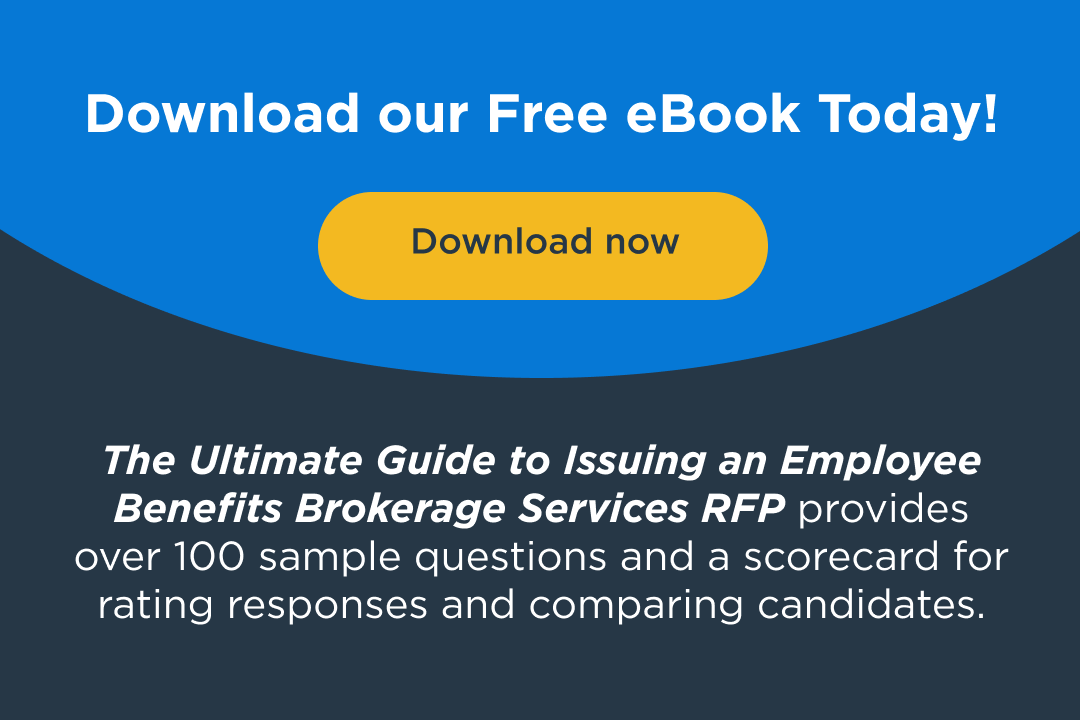When to Look for a New Employee Benefits Broker: Key Signs for HR Professionals
January 15, 2025

As an HR professional, selecting and maintaining the right employee benefits broker is a key part of your job. Your benefits broker is not only responsible for finding cost-effective, high-quality benefits for your employees but also ensures that your organization stays compliant with ever-changing regulations. Over time, however, you may find that your relationship with your current broker no longer serves your company’s evolving needs. Understanding when to seek out a new broker is crucial to ensure your organization is providing the best possible benefits package to your employees.
Here are some key signs that it may be time to look for a new employee benefits broker:
When to Look for a New Employee Benefits Broker: Key Signs for HR Professionals
1. Lack of Communication and Responsiveness
One of the most important qualities of a good employee benefits broker is responsiveness. If your current broker is slow to respond to your requests, misses meetings, or lacks follow-up, it’s a clear red flag. HR professionals need a broker who can respond to issues quickly, especially when urgent compliance questions or claim disputes arise.
When a broker fails to communicate effectively, it can create unnecessary delays and frustration, potentially impacting your ability to deliver benefits in a timely and accurate manner. In a fast-paced business environment, reliable and timely communication is not negotiable.
2. Limited Access to Innovative Solutions
As benefits packages become increasingly complex, HR professionals need a broker who stays ahead of the curve. If your current broker isn’t providing access to innovative solutions such as wellness programs, telemedicine, digital benefits platforms, or other value-added services, you might be missing out on opportunities to enhance your benefits offering.
Modern benefits brokers should offer forward-thinking options that can help your company stand out in a competitive job market. If your broker is relying on outdated solutions or isn’t proactive in suggesting new benefits that could enhance employee satisfaction, it may be time to consider a change.
3. Lack of Cost Control or Rising Costs Without Justification
Cost management is often a major reason for engaging a benefits broker in the first place. If your broker is unable to manage costs effectively, or if you see premiums rising without clear explanations or a strategic plan, this is a major red flag.
A good broker will work with you to identify ways to control costs without sacrificing the quality of coverage. This might involve renegotiating contracts with insurance carriers, implementing cost-sharing strategies, or offering alternative funding options like self-funded health plans. If your broker hasn’t shown any improvement in cost control despite your concerns, it’s a sign that you should be exploring other options.
4. Failure to Stay Current with Regulations and Compliance
The benefits landscape is constantly changing, especially when it comes to compliance with state and federal regulations. A broker who fails to keep up with the latest compliance requirements—such as those related to the Affordable Care Act (ACA), ERISA, COBRA, and other relevant laws—can put your organization at significant risk.
If your broker isn’t proactively informing you about regulatory changes or offering compliance support, you might be exposed to costly fines and penalties. It’s crucial to work with a broker who is up to date on the latest changes and can help ensure your benefits programs remain compliant.
5. Your Employees Are Complaining About the Benefits
Employee satisfaction with benefits is a key driver of retention and engagement. If employees frequently express dissatisfaction with their benefits options or if there’s a noticeable increase in the number of benefits-related questions or complaints, it’s a sign that your current broker might not be providing the right offerings.
Your broker should be regularly gathering feedback from employees, assessing their needs, and helping you implement programs that will resonate with your workforce. If employees are disengaged or frustrated with their benefits package, it’s time to find a broker who takes a more proactive approach to employee satisfaction.
6. You’re Not Getting Strategic Support
An effective benefits broker should act as a strategic partner, providing guidance on how to align benefits offerings with your overall business goals and employee engagement strategies. If your broker is only providing transactional services—like just renewing plans and processing paperwork—without offering advice on how to better engage your employees or optimize your benefits packages, you’re likely not getting the full value from the relationship.
A strategic broker should help you design benefits programs that align with your business objectives, whether that’s improving employee retention, reducing absenteeism, or attracting top talent.
7. They Lack Experience with Your Industry or Company Size
As your organization grows or changes, the needs of your benefits program evolve. If your broker doesn’t have experience in your industry or isn’t equipped to handle the unique needs of your company size, this could cause misalignment and inefficiencies.
Industry-specific knowledge is crucial, as different sectors have different benefit requirements. For example, healthcare or tech companies may need more flexible benefits options, while manufacturing companies may prioritize safety-related benefits. If your current broker doesn’t understand your industry or the specific needs of your business, it’s time to find a broker who does.
8. You’re Not Getting the Personalized Service You Need
In a crowded benefits marketplace, many brokers focus on the “one-size-fits-all” approach, offering basic benefits packages without customizing them to fit your company’s needs. If you feel like your benefits package is generic or not aligned with your company culture, it’s time to look for a broker who can offer personalized solutions tailored to your employees’ needs.
A good broker will take the time to understand your company’s culture, goals, and challenges to craft a benefits package that fits your unique situation.
Conclusion
Selecting the right employee benefits broker is crucial to the success of your benefits program. If you’ve noticed any of the signs above, it may be time to start exploring new options. Don’t settle for a broker who isn’t meeting your needs—seek out a partner who will provide the expertise, innovation, and personalized service you need to create a benefits package that attracts and retains top talent while ensuring compliance and cost control.


